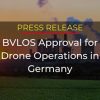Renewable energy is the key to a cleaner, brighter energy future. And solar is one of the most promising global sources of renewable energy. It’s cheaper (and arguably cleaner) than nuclear, coal, or combined cycle gas turbines – and that’s why we’re seeing an increasing number of utility-scale solar parks popping up across the globe.
Yet, large-scale operations in the harsh environments most suitable to solar electricity production are challenging. Remote, geographically dispersed, and sparsely manned – park construction, operations and maintenance are complex and costly. The components of solar power generation systems are surprisingly fragile – subject to mechanical and technical failure, wear and tear, and even vandalism and theft.
Moreover, to maintain competitive pricing, solar energy producers need to be ever vigilant about their bottom line. They are constantly seeking ways to improve efficiency, lower CAPEX and OPEX, safeguard technology investments and – most importantly – maximize energy output.
Current Technology Helps…But Not Enough
There is technology out there to assist solar farm operators in monitoring key points of failure – some created especially for solar power generation, like smart metering. Others include piloted drone solutions or solutions that facilitate or document manual inspection. Yet these solutions lack the accuracy and scope that enable park operators to keep a finger on the pulse of multiple sites comprising hundreds of thousands of moving parts.
- Manual inspection regimes send field engineers physically connect meters to individual modules, searching for underperforming components. The problem here is time – in industrial scale solar farms, a facility-wide inspection can take months or even years to complete, even as revenue is lost owing to undetected module failures – and the cost of the teams of engineers.
- Human-piloted drones equipped with cameras can be used to scan each site for defects. Yet, flying these drones is labor-intensive and monitoring video feeds is highly subjective. One operator oversight can result in thousands of lost kilowatt hours in production. Moreover, a single day of monitoring for a large solar site can cost thousands of dollars.
Enter Autonomous Drones
Autonomous drones make solar energy farms more productive, more cost-effective, and more secure. An on-site autonomous drone system facilitates continuous and automatic oversight of the full range of solar park operations – even hard-to-reach or remote areas in unmanned facilities.
In our new industry paper (aptly titled ‘Autonomous Drones for Efficient and Secure Solar Energy Production’ and downloadable here), we present an in-depth use case for autonomous drone systems in solar parks. Here are just a few of the reasons many solar park operators and stakeholders are turning to advanced autonomous drone technology:
SAFE, CONTINUOUS, EFFICIENT SITE CONSTRUCTION
Ambitious and binding renewable energy targets have resulted in massive construction of solar farms, and contractors are under pressure to complete construction and move to production in record times. Facility commissioning dates are fixed, and delays in solar farm qualification and acceptance can result in high penalties. Autonomous drones drive CAPEX savings during solar farm setup, enabling safer and more efficient construction, and facilitating site delivery and acceptance by:
- Monitoring actual progress on a daily and hourly basis to optimize construction
- Detecting safety issues during complex construction involving multiple workers and heavy equipment
- Providing aerial data during construction and positioning of solar panels, surveying, and terrain mapping
- Providing timely alerts of construction bottlenecks to enable corrective action that minimizes delays
WARRANTY ENFORCEMENT
Solar panels are a significant and long-term investment which is covered by warranty, as well as production and performance guarantees. Consistent aerial monitoring can ensure warranty coverage and support warranty claims, by:
- Efficiently providing end-of-construction inspection reports confirming panel integrity and proper operation
- Mitigating risks of undetected faulty equipment, breakage or underperformance that might affect warranty coverage
CONTINUOUS MONITORING OF SITE PRODUCTIVITY
O&M for industrial solar farms is complex and costly. Where the need to control CAPEX in the construction phase is clear, tighter operational monitoring and control can have a major impact on the OPEX of solar energy production. Autonomous drone systems offer better maintenance and fault detection at a lower cost — reducing overall site OPEX and turbocharging ROI. Percepto’s autonomous drones feature a dual payload that enables combined visual, thermal, and radiometric solar panel monitoring and detection for:
- Ensuring optimal temperature, angle and reception
- Conducting frequent inspections – regular, pre-planned or ad-hoc
- Enabling 24/7 monitoring without additional pilot expenses
- Minimizing electrical component failure by conducting regular checks of multiple individual cells, diodes, junction boxes, modules, strings, combiners, trackers (ensuring correct panel tilt or angle) and inverters
- Mitigating suspected Potential Induced Degradation (PID) or physical obstacles to production such as shadowing, soiling, cracking, and delamination
…and more…download the full Industry Deep Dive Paper here!
The Bottom Line
The future of solar power depends on keeping production high and OPEX low. Autonomous drones facilitate both of these goals – without costly staffing increases, and with a previously unobtainable level of accuracy and efficiency. The future of solar power looks far brighter from above!





